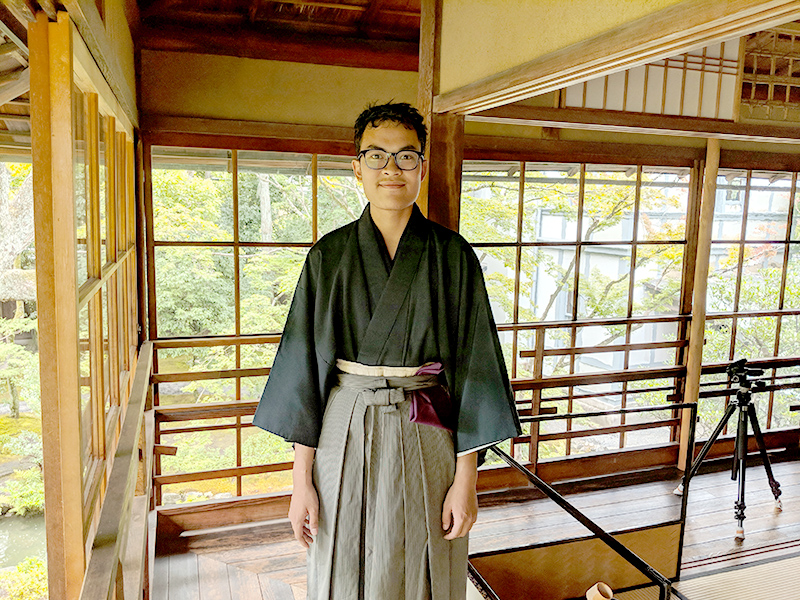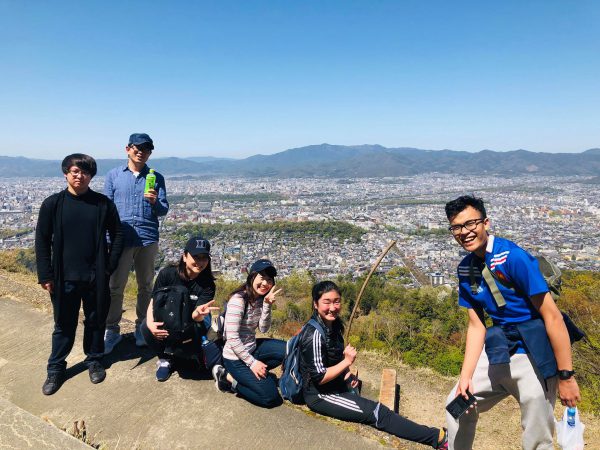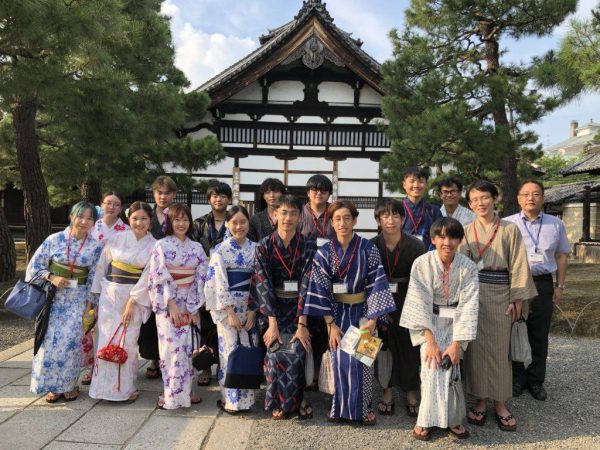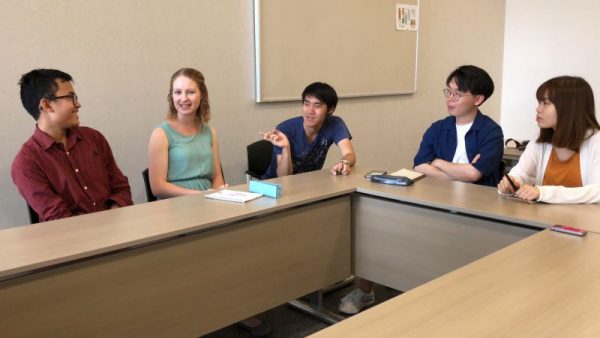My post-graduation dream is to become a bridge between Japan and my native Indonesia.
Ritsumeikan University
Adhiqa Rafifanda Iqbal (From Indnesia)
※Interview in 2019

How did you decide where to study abroad? Please tell us why you chose Kyoto in the end.
I decided where to study abroad based on my university. I chose Ritsumeikan University’s College of International Relations, a department I’m interested in, because it has a long history in Japan. Also, Kyoto’s known as a city of students, so I felt it would be the perfect place in Japan to continue my education.
What are you currently studying? If you’ve already graduated, what did you study before?
Up until now, I’ve studied international relations, the many connections between countries, especially topics like economics, politics, and trade. However, in the specialty I chose, my studies focused on cultural and social knowledge theories. In my graduation thesis, I did an analysis of K-pop and J-pop—within the broader field of international affairs, I was learning about culture and society.
Before studying abroad, what kind of image did you have of Kyoto?
Before studying abroad, I’d visited Kyoto several times before, so I had some idea of what Kyoto was like. To be honest, compared to other cities, Kyoto is much quieter. (laughs) I also felt that it was a really tranquil place.
How did your image of Kyoto change when you actually studied abroad here?
After studying in Kyoto, my image of the city really didn’t change. It was just the Kyoto I’d imagined.

What were you nervous about before studying abroad? Please tell us in detail.
I had experience living in Japan for a long time before I studied abroad, so I wasn’t really nervous, but since it was the first time I’d be taking classes in English, I was worried about whether I’d be able to properly write my reports. It had been years since I’d properly used English, so I was nervous about it, but it came back to me when I started to use it, so it was all right in the end.
What about Kyoto makes you glad to have come here? What has made an impression on you?
I feel really touched by the variety of people I’ve been able to meet since coming to Kyoto. I’ve been able to learn so much, not only from the students that come from my own home country, but from my Japanese friends and international students I’ve met from other countries. Studying abroad has given me a more diverse perspective, and I’ve been able to see a much larger view of the world.

Was there anything especially difficult about studying abroad?
The most difficult things for me were that a number of difficult things all came together and happened at the same time while I was studying abroad. A typhoon, heavy rains, an earthquake, and the coronavirus pandemic all happened while I was studying abroad. It was hard, but I’m taking it as a chance for a learning opportunity for myself.
What do you think is most appealing about studying in Kyoto?
I think one of the best things about Kyoto is really that it’s a student town, and you can meet students from a variety of backgrounds here. Over the past four years I’ve met many different students that I’ve learned from, and I think I’ve become a better person because of it.

How do you want to utilize your study abroad experience in the future?
I’d like to use my study abroad experience when I actually start working. Nowadays, “globalism” is a really important keyword, and we’re living in an era in which a single approach to a problem doesn’t work. To that end, I’d like to use my broader perspective to help discover new solutions to problems, and help make the world a better place.
What is your post-graduation dream?
My post-graduation dream is to become a bridge between Japan and my native Indonesia. The reason for this is because Indonesia is a developing country, and it’s in the middle of huge economic growth. Japan and Indonesia have a deep friendship, and I think Japan could be a good role model. Even now, there are many examples of Indonesia succeeding by following Japan’s example, and I think Japan’s approach will continue to be necessary for Indonesia in the future. Having said that, good points of contact between the two countries are very important, and I think they’ll become vital to the continued connection between Japan and Indonesia in the future.
Lastly, please give a message to students considering studying abroad in Kyoto.
Please come to Kyoto if you’re considering studying abroad here! The nature is abundant, there are many fields to study at the universities, and it’s also a city where many other students live, too. It’s a place with many possibilites, including personal growth. It’s something you’ll feel for yourself when you come here, so please consider studying abroad in Kyoto!





